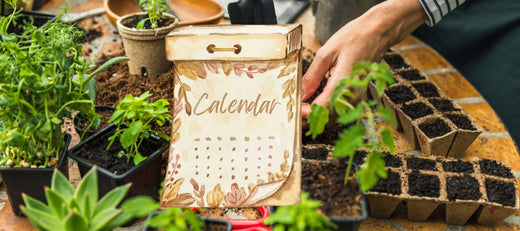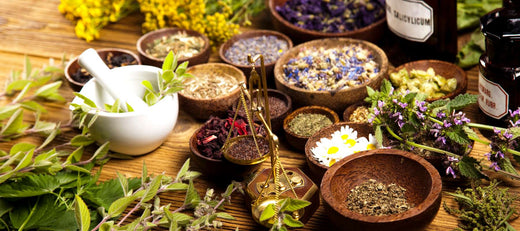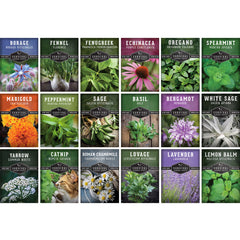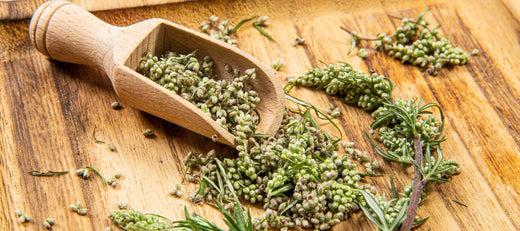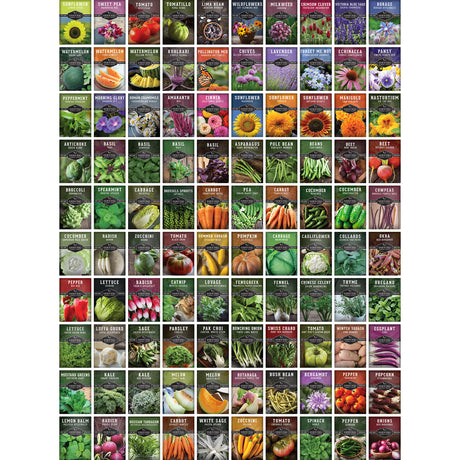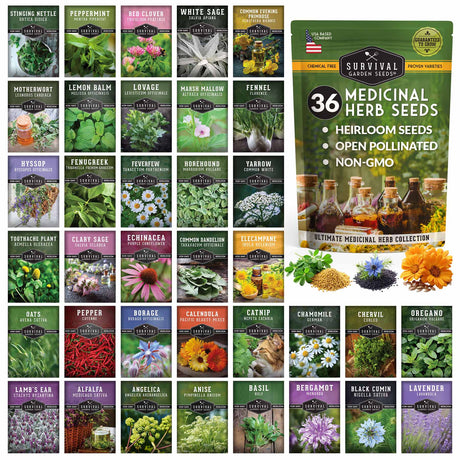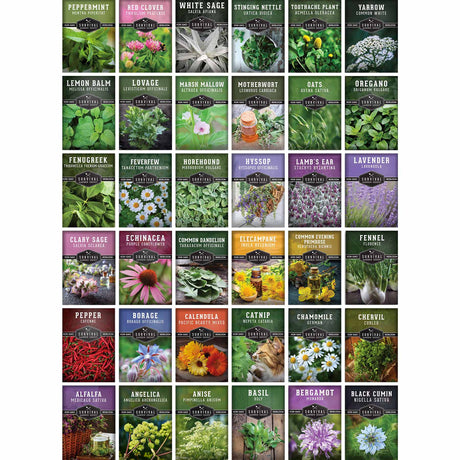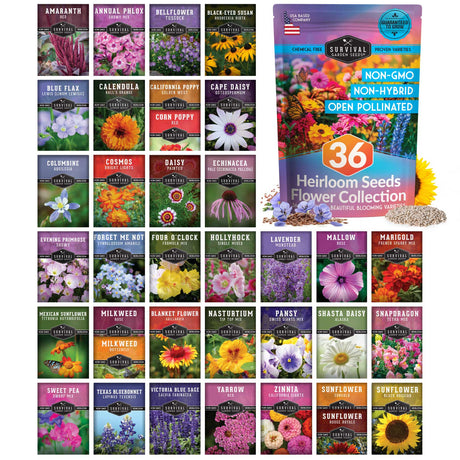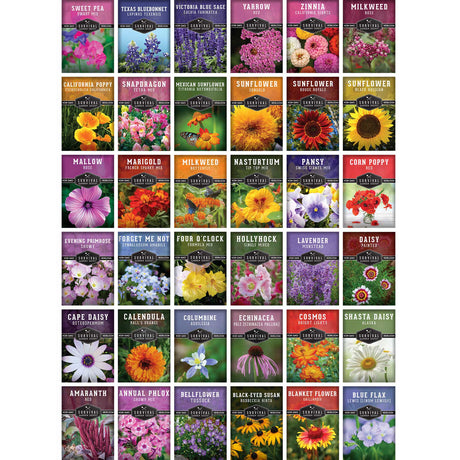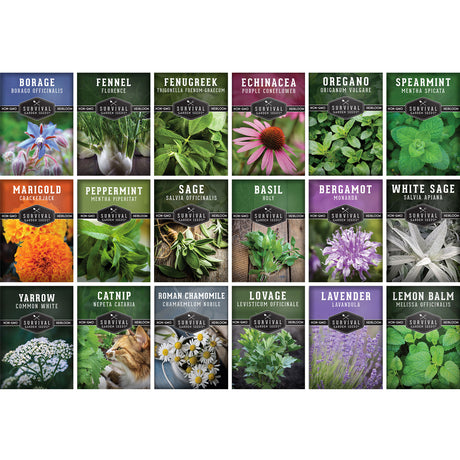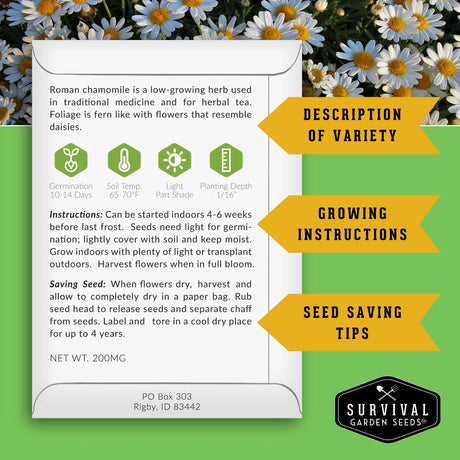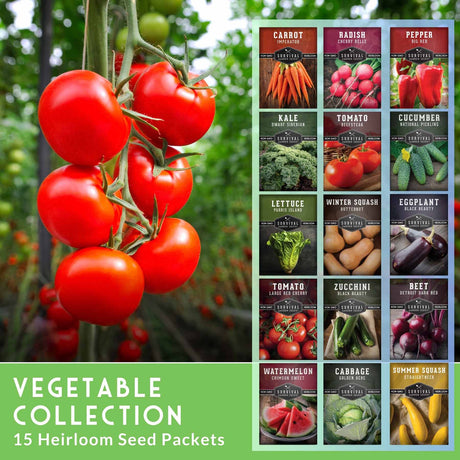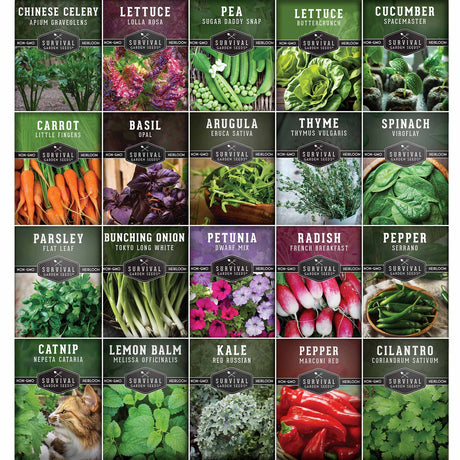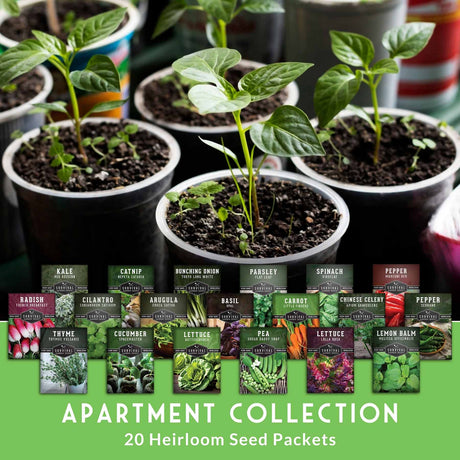Mugwort, or Artemisia vulgaris, is a healing plant with a rich history and a wide range of uses. Its Latin name comes from the Greek goddess Artemis. Today, it still has a strong association with themes related to Artemis, including nature, women’s health, the moon, sleep support, and dreams. Although mugwort is incredibly useful, its vigorous growth means it can easily become invasive if not managed carefully. When planting and growing mugwort, it's important to take steps to protect the local ecosystem, including safeguarding livestock and pets.
Why Grow Mugwort?
Mugwort is a beautiful, robust plant that is often grown as an ornamental. Its lovely silver-green foliage and small flowers attract bees and other beneficial insects to the garden, deterring pest insects like midges and mosquitoes. It can also be used as a natural insect repellent when dried, helping keep moths out of your pantry and drawers. In East Asian cuisine, it is used as a culinary herb for its unique, bitter flavor. Perhaps most importantly, mugwort is a highly beneficial medicinal herb, supporting healthy digestion, stress management, skin health, circulation, and women’s issues.
Growing Mugwort from Seed
Cold moist stratification improves mugwort’s germination rate. If you start your seeds outside in the fall or by winter sowing, nature will take care of this step. If not, place seeds in wet peat moss, paper towels, or vermiculite in a plastic bag and refrigerate for 2-4 weeks. Mugwort seeds are small and need light to germinate, so they should be sown on the surface of the soil and firmly tamped in for good soil contact. Once sown, avoid disturbing the soil to give the seeds the best chance to sprout. Patience is required for mugwort seeds as they take 14-21 days to germinate. If starting indoors, begin 6-8 weeks before the last frost and transplant the seedlings outdoors once the danger of frost has passed.

Mugwort is incredibly hardy and can tolerate a wide range of conditions, but it prefers well-drained soil and full sun to partial shade. Once established, it’s a vigorous perennial that requires minimal care, thriving in poor soils and handling drought remarkably well. This low-maintenance plant will return year after year, and without firm boundaries, it can spread rapidly.
Keeping Mugwort from Spreading
Mugwort’s rapid growth can be both a blessing and a curse. It can quickly become invasive, especially in the Northeast, Mid-Atlantic, and Pacific Northwest regions. This plant can be toxic to animals if eaten in large quantities, so it’s also a good idea to grow it well away from any grazing areas. If you want to grow mugwort in your garden, it’s crucial to take steps to prevent it from spreading and overtaking your garden or escaping into neighboring areas. Here are some effective strategies to make sure your mugwort stays right where you want it.
- Container gardening: The easiest way to prevent aggressive plants from spreading is to keep them contained. A fully enclosed planter or pot prevents its roots from spreading and taking over other parts of the garden.
- Root barriers: If you do plant mugwort directly in the ground, consider installing a root barrier at least 18 inches deep to prevent mugwort’s escape. Materials like metal or plastic can help keep rhizomes from spreading beyond the boundaries you set, effectively creating a container garden. Although some suggest landscape fabric, I do not recommend this. It breaks down rapidly and can become a nightmare to remove later, leaving you with shreds of plastic in your soil. Choose a sturdy barrier or container, which is much more effective at controlling root spread and easier to manage.
- Regular pruning: Mugwort can become a very large plant if untended, reaching up to 6 feet. Regular pruning keeps it from overshadowing other plants and dominating the landscape. Prune in early spring or late summer to maintain control and reduce the plant’s ability to self-seed.
- Dedicated growing area: If you have the space, consider keeping mugwort somewhat isolated from other plants, so that you can immediately see when it is spreading and prevent it from encroaching on other plants. This also allows you to set up barriers to prevent animals from accidentally grazing on the plants.
Mugwort Tea & Other Uses

Mugwort is a valuable medicinal plant with a variety of uses. Here are some of the most common applications:
Mugwort Tea
A cup of mugwort tea can aid digestion, alleviate gastrointestinal discomfort, and promote relaxation. It’s also believed to improve circulation and has potent anti-inflammatory benefits. Mugwort tea is said to encourage vivid dreams, lucid dreaming, and the recall of dreams after waking, making it a popular choice for dreamwork and similar exploration.
Topical Use
Mugwort is used topically in ointments, salves, and as a bath additive for its anti-inflammatory and antibacterial properties. It’s an excellent choice for soothing skin irritations, such as eczema, insect bites, or minor wounds, reducing inflammation, and promoting relaxation.
Insect Repellent
Dried mugwort can be used to protect stored goods from pests like moths, and it’s often included in natural insect repellents. To use as an insect repellent, dry the mugwort leaves and place them in sachets to safeguard your pantry or drawers.
Caution: Avoid prolonged use of mugwort and do not consume if you are pregnant or have a ragweed or celery allergy. As always, it is important to consult with a healthcare provider before incorporating new herbs into your routine.
Grow Mugwort in Your Garden
Mugwort is a wonderful addition to any garden, offering beauty, resilience, and a multitude of uses. With a little bit of planning and proactivity, it’s possible to grow mugwort responsibly and control its spread. It’s an especially good choice for the container herb garden. By taking the necessary precautions to prevent its invasive spread, you can safely enjoy all the benefits that this valuable medicinal herb has to offer.


